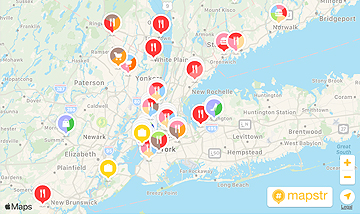Official speeches and statements - December 12, 2016
2. NATO - Syria - Russia - United States - Press briefing given by M. Jean-Marc Ayrault, Minister of Foreign Affairs and International Development (Brussels - December 6, 2016)
1. Fight against terrorism - Syria/Iraq - Speech by M. François Hollande, President of the Republic - excerpts (Aircraft carrier Charles de Gaulle - December 9, 2016)
(...)
IRAQ/SYRIA/DAESH
The situation has changed considerably over the past year. In November 2015, Daesh [so-called ISIL] occupied a large area of territory and entire cities, and could organize attacks here in this region of the Middle East but also in Europe and on our own soil. Today, Daesh, Islamic State, is retreating in Iraq and Syria and also in Libya, where it had begun to establish itself. Every day, thanks to you, we’re driving back the terrorist organization a little more, and it’s now entrenched in a few strongholds that we absolutely must capture.
We know the aims of our military presence in the Levant: to help local people regain their freedom, to drive out the terrorists and ensure our own security, because our domestic security, that of our compatriots, your families, is directly linked to the threats developing abroad and particularly in the Middle East, which can, as we’ve tragically seen, be transferred onto our soil. What you’re carrying out here is not only action abroad but also domestic protection.
So the mission I’ve entrusted to the armed forces is to support the action of the local forces fighting against Daesh and against the Islamist networks that claim allegiance to it. We’re acting as part of an international coalition. The carrier battle group is a good example of this, because the coalition enables us to have the support of the German and American frigates, and in the air our planes are also coordinated in the framework of this allied joint operation. We lend this support to local forces first of all thanks to reconnaissance, observation, intelligence-gathering missions over Iraq and Syria. That’s crucial in order subsequently to give our planes clear targets. Then we tirelessly strike Daesh’s military capabilities. Rafales are taking off as I speak [and] every day from the aircraft carrier Charles de Gaulle and our forward air bases.
The figures speak for themselves. They must be known. Since the beginning of the operation, our planes have carried out 5,000 sorties over Iraq and Syria and have neutralized 1,600 targets. I wanted to express our gratitude to you.
IRAQ/MOSUL
Since September, this intervention has been complemented on the ground - I decided this - with a tactical artillery group from the army which is helping secure the areas captured around Mosul by Iraqi forces. More than 150 firing missions have been conducted. (...)
Finally, there’s the training of Iraqi forces and the advice we can give them. As I’ve told you, the results are impressive: towns and cities have been recaptured in Iraq, Mosul is starting to be recaptured, lines of defence have been broken, and we think we’ll accomplish the operation in the coming months, even though we know the battle will be long and difficult.
SYRIA/RAQQA
In Syria, the Syrian democratic forces are approaching Raqqa, and there too we’re putting Daesh and its organization in very great difficulty. It was because the final battles were looming - those of Mosul and Raqqa - that I decided to extend until mid-December the carrier battle group’s presence, your presence. I know what this has cost. I’m not talking about the budgetary cost but what it’s cost at human level, at organizational level, to keep the carrier battle group until mid-December. But it was necessary, and you’ve understood this perfectly, because it was about stepping up further our support and striking decisive blows against the terrorists. And we’ve done so - and you can be proud of it - while respecting civilians. Sparing civilians while accomplishing the objective doesn’t only mean respecting humanitarian law: it’s also a moral imperative, it’s a requirement for the sake of the ideals we uphold - we, France - and it’s also what makes it possible subsequently to find a political solution in Mosul, in Iraq, but this will also be true in Syria.
ALEPPO
As I speak, Aleppo, Syria’s second city, which has become a symbol, a martyred city, a symbol, unfortunately, of the bloody conflict in Syria, that city, Aleppo, which yesterday was a highly attractive city with a considerable heritage, with hundreds of thousands of inhabitants, that city is being crushed under shells and bombs. The population is being held hostage. The weakest are being deliberately targeted in schools, in hospitals, if there still are any. Sometimes they hide underground beneath the buildings, seeking respite. Civilians are being terrorized; they can’t leave the martyred city for lack of a truce and humanitarian corridors.
So, at the United Nations Security Council, France is taking action with its allies to stop the massacre. Sadly, our resolutions are being blocked by the Russian veto. We’ve declared the need for a ceasefire each time. It was announced yesterday. It was broken this morning, once again, by the Syrian regime and its Russian and Iranian supporters. With the UN, with the European Union, with the non-governmental organizations, France is seeking to open up a route enabling the inhabitants to be evacuated, enabling the population to be provided with humanitarian aid and those men and women surviving in the city to be fed or given treatment.
It’s our duty, because while France uses force when it’s necessary and it’s you who contribute to this, at the same time it always seeks solutions for peace. (...)
2. NATO - Syria - Russia - United States - Press briefing given by M. Jean-Marc Ayrault, Minister of Foreign Affairs and International Development (Brussels - December 6, 2016)
I’m participating in this NATO [foreign] ministers’ meeting at an important time. We’re in a period of transition and one which no doubt raises concerns, since we’re going to have a new administration in the United States shortly. And this is John Kerry’s last meeting; incidentally, I’ll be having a bilateral meeting with him in a moment, and it’s important to reaffirm the solidarity and solidity of the Atlantic Alliance. That, to begin with, is the first point I’ll be developing at the meeting.
And I’d like to say a second thing: the Atlantic Alliance is also about values and reiterating our commitment to democracy. And the Atlantic Alliance is an organization whose purpose is also to protect our countries against new dangers, new threats, be they from the east or the south. But, at the same time, we’ve been working actively over the past few months, and this, moreover, was the task of the Warsaw summit - to respond to these threats. For example, there’s what we’ve got to do as regards cyber security. Then there are specific demands from our eastern partners, which we obviously took on board. France, in particular, is going to make 300 troops available to the Baltic countries.
Yet, at the same time, let’s be clear: my and France’s message is that we don’t want to enter into a cold-war spiral with Russia. We must talk to each other frankly, and this is why I’m in favor - it’s also what has been decided - of a structured, robust, frank dialogue with Russia. Let’s start now. I think it will be likely to create more trust. It’s necessary because, once again, Russia isn’t our enemy. But we’ve got to face facts, lay them on the table and continue addressing with them [the Russians] all the questions raised - in particular how, in this day and age, security guarantees can be provided for everyone and every country, not just NATO countries.
Final point: as you know, the European Union has adopted an autonomous defense and security strategy, with guidelines concerning capabilities and, at last, a program and ambitions in terms of the defense industry and research. On this subject I’d like to specify, so that things are clear, that this is in order to engage more in Europe not in place of NATO, but in addition to it. And I think it was important to make this clarification today, in the context of the transition in the United States.
I told you I’m going to meet John Kerry in a few moments’ time; we’re obviously going to discuss current developments in Syria. What worries us a lot is the humanitarian situation in Aleppo, and I deeply regret the veto, particularly by Russia, that was issued at the United Nations Security Council, when the vote would have made it possible to secure a truce within 24 hours, allow humanitarian access and stop this total-war mentality. I’m going to talk to John Kerry about the discussions he’s currently having with Russia, and then, with a view to this Saturday’s meeting in Paris with all the like-minded countries - friends of the democratic transition in Syria -, see what new initiative we can take to relaunch the political negotiation process. We’re convinced there will be no lasting peace in Syria if the military route alone continues to be followed and if the path of negotiation isn’t taken; at any rate, that’s France’s point of view. (...)














